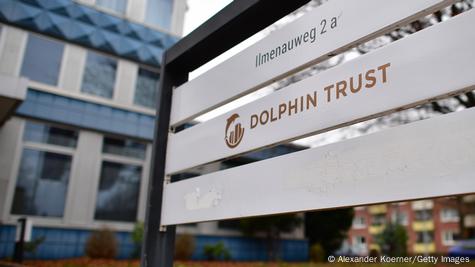Investors caught in the collapse of the Dolphin Trust, also known as German Property Group (GPG), are expressing growing anger over the slow and uncertain progress in recovering the €1 billion they are owed. The property investment scheme, run by German businessman Charles Smethurst, has been widely denounced as a Ponzi-style fraud, with thousands of mainly British and Irish investors left financially devastated.
Now four years after the company’s insolvency, many victims say they feel abandoned by both German regulators and international authorities. Despite promises of legal proceedings and asset recovery, only a fraction of funds have been reclaimed, and no meaningful compensation has been distributed. Several insolvency administrators, appointed in Germany to handle the fallout, have been criticised for lack of transparency and for failing to prioritise retail investors.
The scheme promised double-digit annual returns by investing in the renovation of listed buildings in Germany. Marketing materials, often promoted through UK-based financial advisers and unregulated introducers, framed Dolphin as a safe, asset-backed property play. But by the time GPG collapsed in 2020, it had amassed more than €1 billion in unsecured loans from ordinary savers, many of them pensioners, small business owners, and first-time investors.
Investigations have revealed that investor funds were allegedly siphoned off to fund lavish lifestyles, while some of the renovation projects were never even initiated. Charles Smethurst, the founder and key figure behind Dolphin, has so far avoided criminal conviction, despite widespread accusations of mismanagement and fraud. His whereabouts and financial position remain unclear.
In the UK, MPs have raised the issue in Parliament, calling for a formal investigation into the role of introducers and advisers who encouraged clients to invest in the scheme without due diligence or regulatory safeguards. Some of these advisers have since been struck off, but victims say there has been no coordinated government response to the cross-border nature of the fraud.
Calls are now growing for a multi-jurisdictional task force to fast-track asset tracing, freeze offshore holdings, and push German prosecutors to take firmer action against those responsible. Investors are also demanding greater involvement from the Financial Conduct Authority and the Irish Central Bank, which they argue should have intervened earlier given the scale of the marketing operations.
The Dolphin collapse is fast becoming one of Europe’s largest-ever retail investment frauds. For the thousands affected, each delay in justice deepens the sense of betrayal. With billions missing and trust in institutions eroded, the pressure is mounting for authorities to finally deliver answers – and restitution.
REFH – newshub finance



Recent Comments